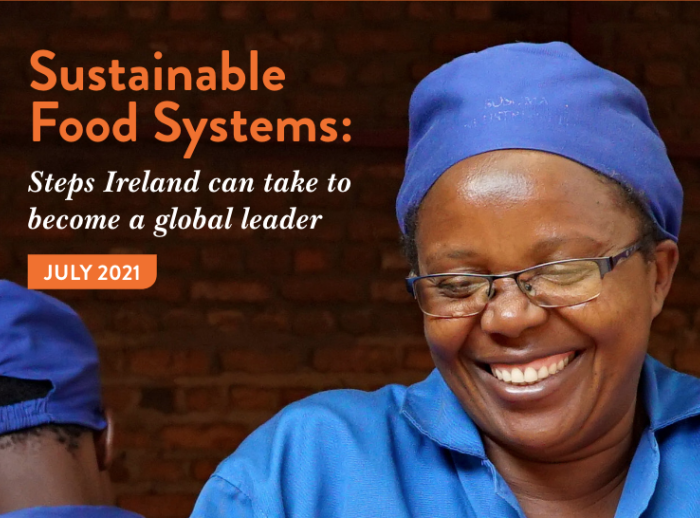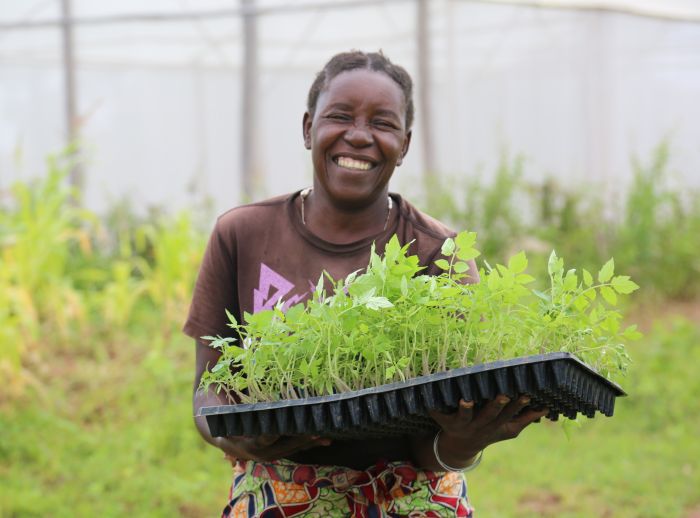- 2 min read
- Published: 29th July 2021
Ten takeaways from our new sustainable food systems report

Today, we launched a new joint report with Trócaire entitled Sustainable Food Systems: Steps Ireland can take to become a global leader.
The document highlights rising global food insecurity and the urgency of delivering on the right to adequate food for all in sustainable ways. It also takes a closer look at the Irish government’s ambition to become a champion of fair and sustainable food systems on the global stage and offers pathways for how it can achieve this goal.
At more than 100 pages long, there’s a lot to digest in this report, but these 10 takeaways should give you a flavour of our findings:
1.
Agriculture and food systems urgently need to be transformed to reduce the threat to communities already at risk from the climate and biodiversity emergencies; land-use competition, and conflict.
2.
Moving towards sustainable food systems needs investment and strategies based on social equity; women’s empowerment; economic security; environmental regeneration, and resilience in the face of climate change and other shocks.
3.
We need binding legislation if we want to ensure the agri-food sector is fulfilling its human rights and environmental obligations throughout its value chain – this is something Ireland can and should champion on the global stage.
4.
Only a small portion of current official development assistance (ODA) spending on food and nutrition is directed toward sustainable agriculture projects. ODA support for food and nutrition security should be more clearly directed toward sustainable or agroecological initiatives.
5.
Increasing the proportion of ODA spending used to support sustainable agriculture initiatives can move us in the right direction and ensure the communities Oxfam and Trócaire work with have the tools to adapt and build climate-resilient livelihoods.

6.
A national sustainable food systems body should be established to provide space for the voices of all stakeholders – including the most marginalised in Irish society – to be heard and integrated into decision-making.
7.
Narratives claiming that Ireland’s food is ‘produced sustainably’ or that we’re making great progress towards ‘driving sustainable food production’ are difficult to validate – highlighting the need for transparent ways to measure progress on the transition to sustainable food production.
8.
Irish farmers aren’t being adequately supported to transition to more sustainable agricultural methods and approaches. In some cases, they’re even penalised for their efforts to support biodiversity. We need incentivised schemes to support farmers to develop sustainable practices.
9.
Programmes with clear environmental and social sustainability objectives need to be scaled up, while there should be more investment in rural economies to help bolster the production and distribution of fresh, nutritious and local produce.
10.
We should be bolstering local markets rather than putting them at risk. Take subsidised Irish milk powder exports to West Africa, for example, where local government officials, small-scale dairy owners and farmers argue that powdered imports are nutritionally inferior and environmentally damaging, and undermine local markets and dairy production.
